The election of 1964 pitted Lyndon B. Johnson against Barry Goldwater.
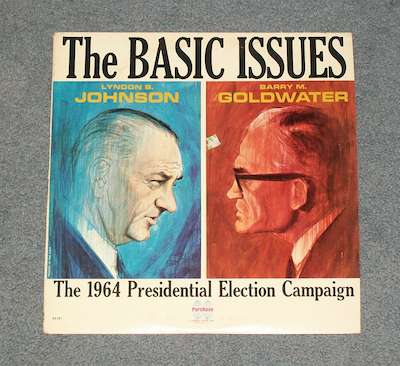
Johnson, the Democratic nominee, had become the de-facto incumbent candidate after a grassy knoll in Dallas elevated him to the office less than a year before the elections were to take place. A shrewd legislator who won an uphill battle in getting the Civil Rights Act of 1964 passed, he campaigned in a favorable political climate on a series of anti-poverty programs collectively known as the Great Society; sweeping, New Deal-esque reforms that included stalled initiatives from JFK’s New Frontier strategy.
During the Democratic primary race, his only significant hurdles came from the likes of Alabama governor George Wallace (known for his hatred of desegregation) and Robert F. Kennedy (known for his hatred of Lyndon B. Johnson).
For the most part though, Johnson’s path to the general election was relatively smooth sailing.
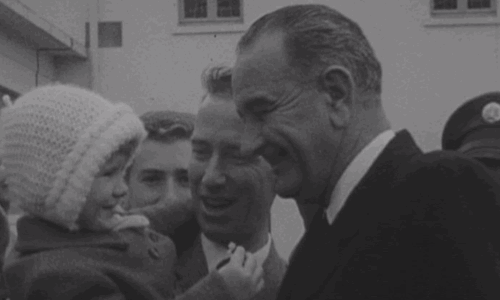
The Republican Party, on the other hand, was an absolute disaster…
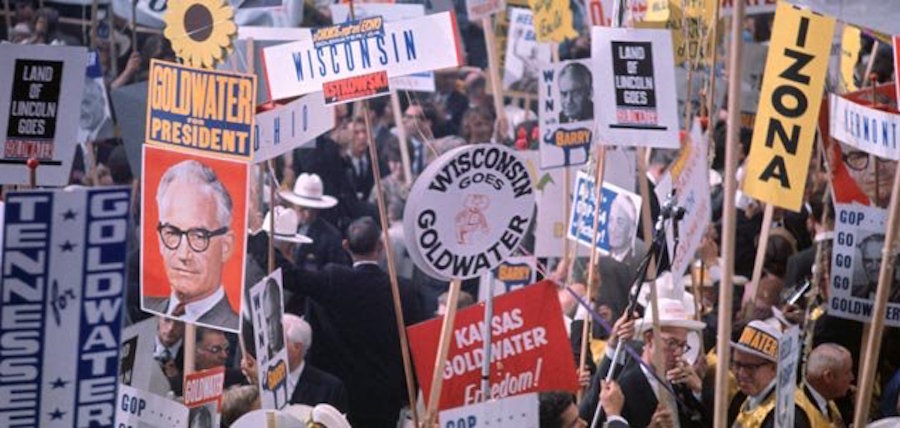
Initially, Nelson Rockefeller was considered the front-runner.
A fairly liberal Republican from New York — see: “Rockefeller Republican” — he was the leader of the GOP’s “Eastern Establishment.” However, in 1963 (one year before the election), Rockefeller went ahead and scandalously married a woman named Margarita “Happy” Murphy just two years after having divorced his first wife, Mary.
“Happy” also happened to be 15 years younger than Rockefeller and had suddenly divorced her husband right before marrying the up-and-coming politician, courting rumors Rockefeller had been having an extramarital affair with her all along.
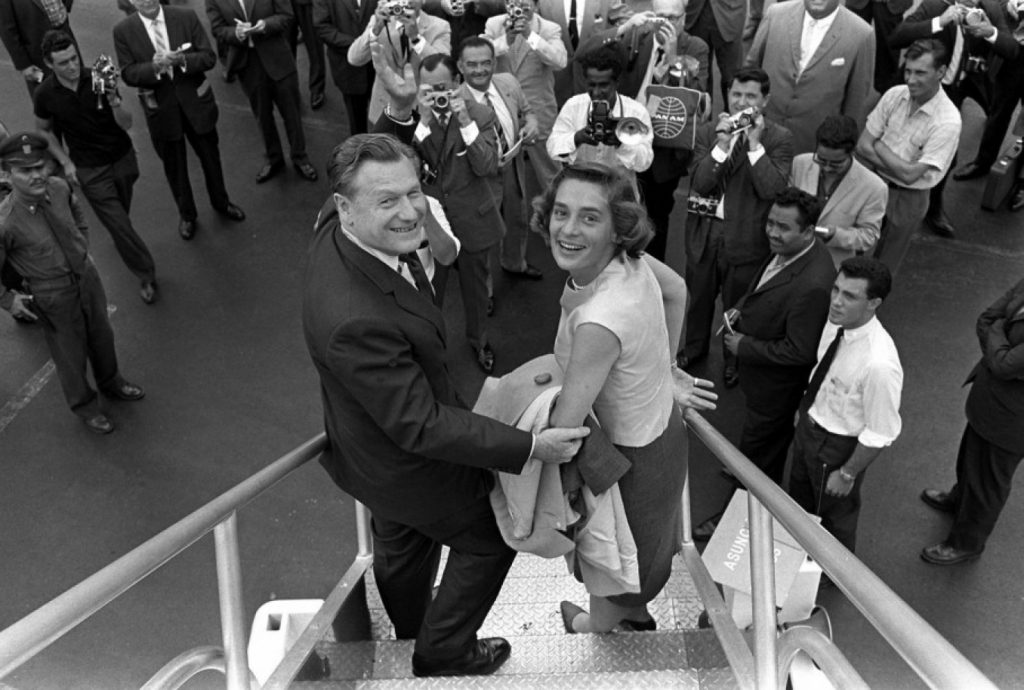
Social conservatives in the party were furious, female voters were outraged, and his lead among Republicans dropped 20 points essentially overnight.
George H.W. Bush’s father, Senator Prescott Bush, was so incensed he went on public record to condemn Rockefeller’s actions:
“Have we come to the point in our life as a nation where the governor of a great state — one who perhaps aspires to the nomination for president of the United States — can desert a good wife, mother of his grown children, divorce her, then persuade a young mother of four youngsters to abandon her husband and their four children and marry the governor?”
Since 1940, the Eastern moderates of the Republican party had defeated their more conservative brethren when it came to the party’s presidential nominations, spawning an ever-growing constituency that resented this group of politicians who they saw as indistinguishable from their liberal opponents. And for these blue-collar Republicans, Rockefeller’s act of (alleged) indiscretion was the straw that broke the elephant’s back; leaving the moderate wing of the GOP unable to court/corral its more conservative base.
Nevertheless, Rockefeller was able to keep the GOP race close all the way up until right before the decisive California primary — when Happy Rockefeller ended up giving birth to Rockefeller’s son. The unfortunately-timed delivery was used as an opportunity to hammer home reminders of Rockefeller’s alleged adultery, and he ended up losing the Golden State 49-51.
Which leads us to this guy, who was suddenly able to snatch the up-for-grabs Republican nomination…
Barry Goldwater.
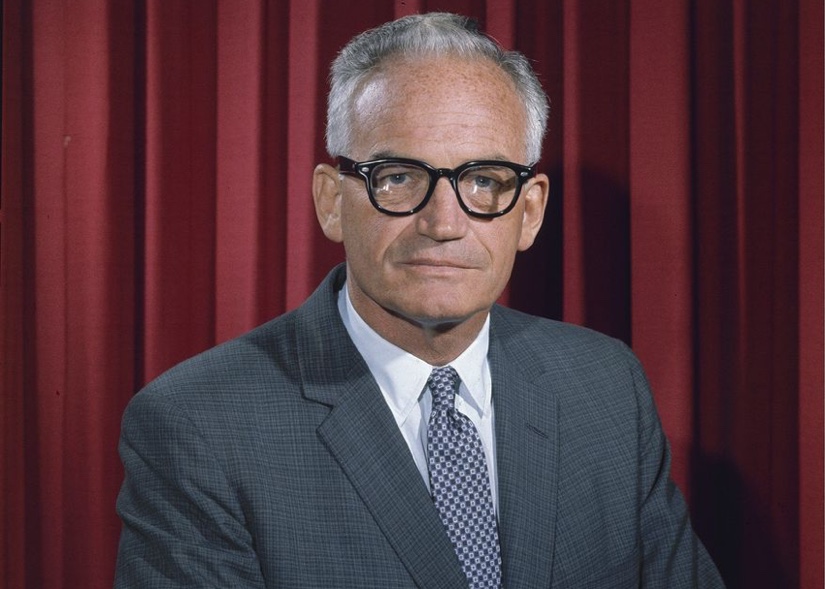
A senator from Arizona who literally wrote the book on conservatism (seriously, it’s called The Conscience of a Conservative), Goldwater was so extreme in his views that, for instance, he considered desegregation not a national consideration but a matter for individual states to decide.
Known for his off-the-cuff, gaffe-heavy speaking style — he once told a news conference “sometimes I think this country would be better off if we could just saw off the Eastern Seaboard and let it float out to sea” — and his emphasis on total victory in war, Goldwater completely, and intentionally, alienated a sizable portion of moderate Republicans by voting against the Civil Rights Act of 1964 shortly before the Republican Convention.
In fact, during that infamous convention in Daly City, Goldwater loyalists so openly expressed their contempt for the moderates in their Grand Old Party that Nelson Rockefeller was loudly, vitriolically booed when he came to the podium for his speech — one in which he criticized and warned against the party’s emerging conservative base…
During his acceptance speech at that same convention, Goldwater would reply:
“Extremism in the defense of liberty is no vice.
Moderation in the pursuit of justice is no virtue.”
Conservatism had historically been based in the American Midwest, but it had been gaining traction in the South and West since the 1950’s and Goldwater catered specifically to this underrepresented demographic; again, much to the chagrin of the more moderate sides of the Republican party.
The New York Herald-Tribune, an outlet for eastern Republicans, even went so far as to support Johnson in the general election, with other moderates in the party deciding to form an official “Republicans for Johnson” organization.
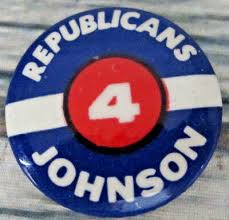
Meanwhile, President Johnson began keenly using this incipient, palpable fear of Goldwater’s extremism to his advantage, unleashing multiple television ads highlighting Goldwater’s ‘dangerous’ views.
Including one called “Confessions of a Republican”:
In it, a self-described Republican voter laments his party’s choice of nominee and wonders what it means to be a Republican anymore:
“…it seems to me we’re up against a very different kind of a man. This man scares me.
Now maybe I’m wrong. A friend of mine just said to me, ‘Listen, just because a man sounds a little irresponsible during a campaign doesn’t mean he’s going to act irresponsibly.’ You know that theory, that the White House makes the man. I don’t buy that. You know what I think makes a President — I mean, aside from his judgement, his experience — are the men behind him, his advisors, the cabinet. And so many men with strange ideas are working for Goldwater. You hear a lot about what these guys are against — they seem to be against just about everything — but what are they for?”
“The hardest thing for me about this whole campaign is to sort out one Goldwater statement from another.
A reporter will go to Senator Goldwater and he’ll say, ‘Senator, on such and such a day, you said, and I quote, ‘blah blah blah’ whatever it is, end quote.’ And then Goldwater says, ‘Well, I wouldn’t put it that way.’ I can’t follow that.
…I wish I’d been a delegate, I really do. I would have fought, you know. I wouldn’t have worried so much about party unity because if you unite behind a man you don’t believe in, it’s a lie.
…when the head of the Ku Klux Klan, when all these weird groups come out in favor of the candidate of my party — either they’re not Republicans or I’m not.”
“I’ve thought about just not voting at this election, just staying home — but you can’t do that, that’s saying you don’t care who wins, and I do care.
I think my party made a bad mistake in San Francisco, and I’m going to have to vote against that mistake on the third of November.”
Soon after, in the most lopsided U.S. presidential election in terms of popular votes and the sixth-most lopsided presidential election in the history of the United States, Johnson defeated Goldwater.
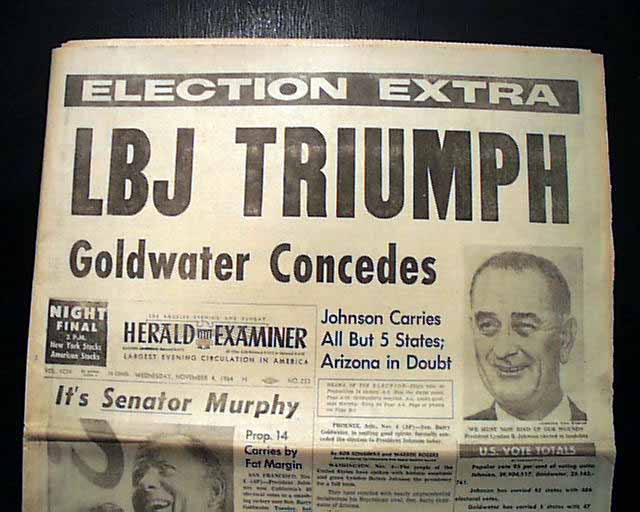
While it was always going to be hard for the Republican party to succeed in the wake of JFK’s tragic assassination, no candidate for president since has equaled or surpassed Johnson’s percentage of the popular vote and only Richard Nixon, in 1972, has won by a greater popular vote margin.
However, even though he got his white hiney kicked, Barry Goldwater and his 1964 campaign nonetheless sparked what is now considered the modern conservative movement, forever influencing the decades-long realignment that has taken place within the Republican Party.
In fact, it was during this campaign that a beloved Hollywood celebrity named Ronald Reagan gave his renowned “A Time For Choosing” speech that celebrated the small government ideals of conservatism and which propelled the political rookie to a landslide victory in the race for governor of California only two years later.
Meaning, when you boil it all down, we have only Nelson Rockefeller and his uncontrollable libido to blame for the rise of both Ronald Reagan and, subsequently, Donald Trump…
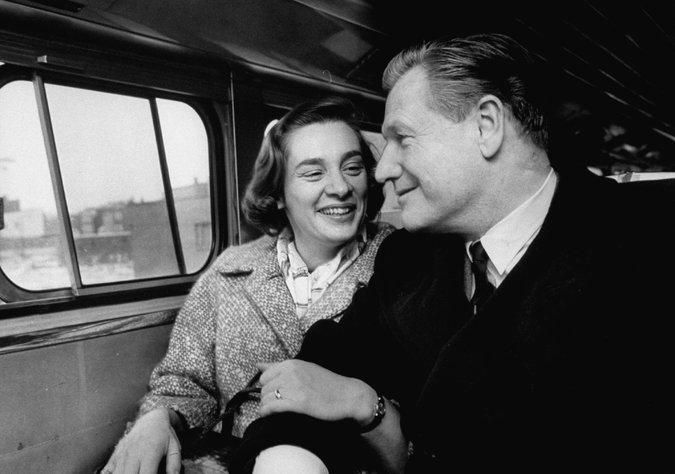
“They say the world has become too complex for simple answers. They are wrong.” — Ronald Reagan

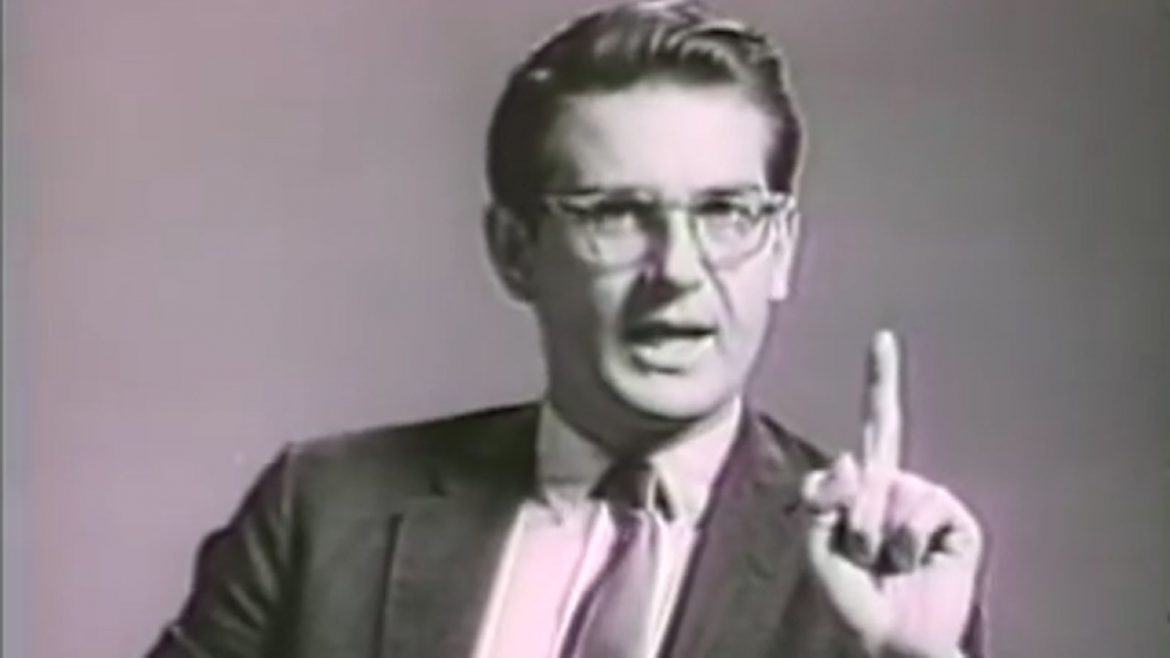

Comments are closed.